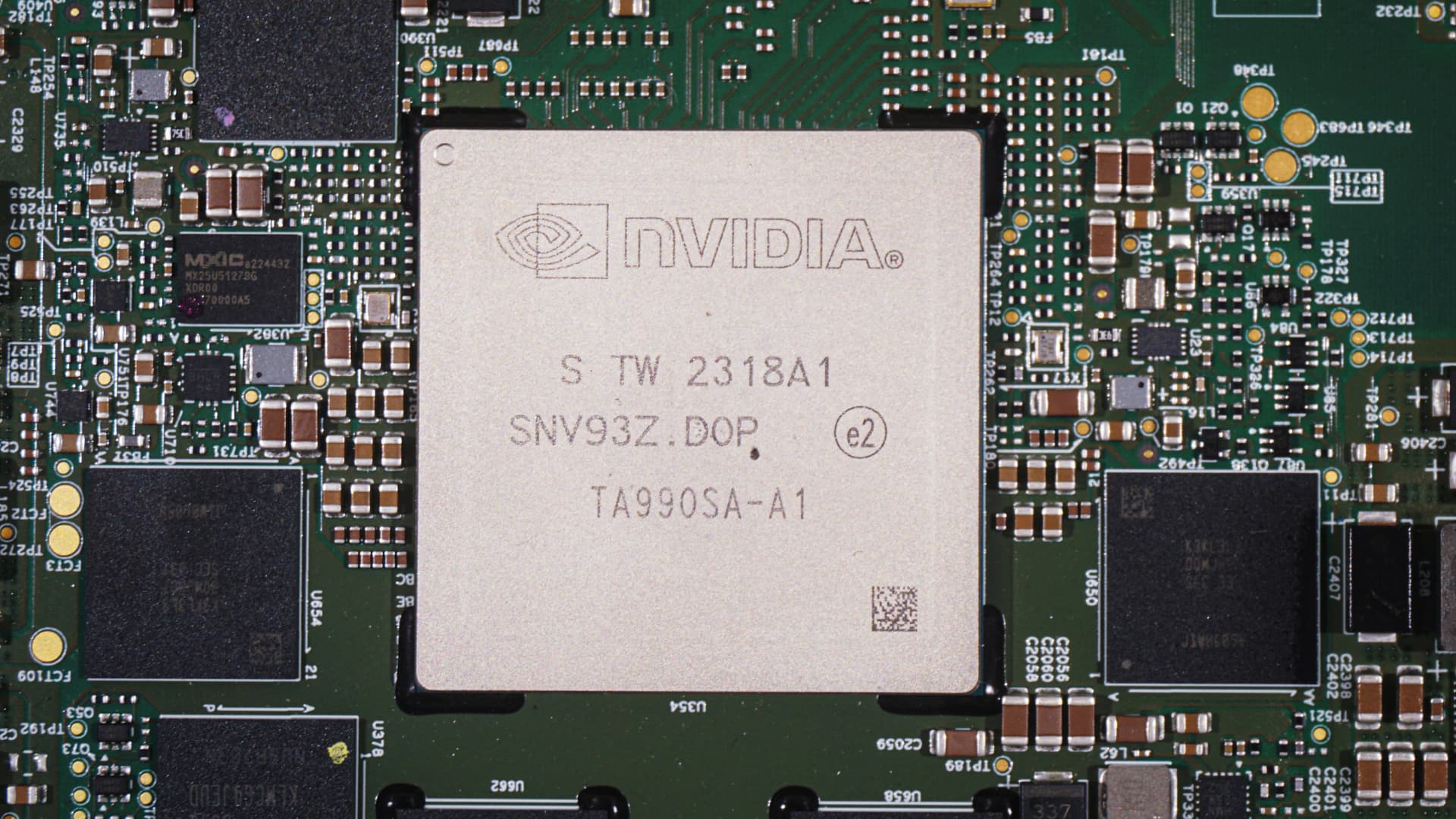Nvidia is in — and Meta is out. That’s according to Stephen Yiu, co-founder and lead fund manager of London’s Blue Whale Growth Fund. The fund held 29 stocks as of the end of March this year, with top holdings including Apollo , Nvidia, Broadcom and TSMC , and more than a third of its investments are in the technology sector. It employs a long-only strategy and has returned 139% since its inception in 2017, significantly outperforming the IA Global Sector average. Over the year-to-date, however, it’s down 9.6% amid a broad slowdown in the tech sector. Selling Meta Speaking to CNBC’s “Squawk Box Europe” on Monday, Yiu said the fund had exited its position in Meta – one of only two so-called “Magnificent 7” it owned, alongside Nvidia. Of those seven megacap stocks – Meta, Tesla , Nvidia, Alphabet , Microsoft , Apple and Amazon – Meta has sustained the smallest losses since the beginning of the year, losing around 6.5% of its value. “We do like the AI story on the back of Meta’s user base of 3 billion users across Facebook, Instagram and WhatsApp,” Yiu said on Monday. However, he argued that Meta’s business model made the company particularly susceptible to the impacts of a U.S. or global slowdown, which was looking more likely amid mounting trade tensions. “A U.S. recession is going to impact the top line of the business, which is still 100% … digital advertising,” he explained. For the Blue Whale fund, Yiu said the Meta exit was an “unusual” move. “Currently we’re running just over 5% in cash on the back of the exit on Meta,” he said, noting that usually, the fund’s cash holding would be “close to zero.” “This is a long-only strategy, so we’d normally be quite fully invested,” he added. “Ultimately, the reason we don’t own the Mag 7 outside Nvidia is because … their return on investment capital profile is coming down.” Retreat from discretionary goods The Blue Whale fund also downsized some of its other investments alongside cashing out of Meta, Yiu said. “We’ve also reduced some of our holdings, like in Nintendo , in luxury and some others that we think are going to see a bit of impact … the world stock market over a few weeks ago was down over 20%, I think people are going to [rethink] whether they’re going to buy a new ski jacket from Moncler next ski season.” In a note to clients last week, Yiu said the Nintendo Switch 2’s $449.99 price tag combined with tariff uncertainty “raises questions about future demand.” Shares of Nintendo rose after the console was announced — a reaction Yiu said the Blue Whale fund “took advantage of … to lower our exposure.” Nvidia bull Reiterating a broad optimism toward AI, Yiu said the fund’s management team preferred companies “on the receiving end of any spending.” As such, Yiu and his team are bullish on chipmaker Nvidia, despite the company’s stock shedding around 17% so far this year. “If you look at the Mag 6 outside of Nvidia that are spending over $300 billion [on AI], I would probably say about half of that will be going to Broadcom or Nvidia, which makes the company very profitable with free cash flow,” Yiu said. He acknowledged that many market watchers had argued Nvidia is “a difficult stock to own now” as it has been caught up in the conversation around tariffs and international trade negotiations. However, Yiu argued that “you have to pick the stock that you really believe in long term, and you might need to ride out the volatility in between.” Outside of the tech space, Yiu noted that other companies in the flagship Blue Whale fund’s portfolio had reported “strong results” amid market volatility. Among them were life sciences firms Sartorius and Danaher , tobacco giant Philip Morris , semiconductor machinery maker Lam Research , and medical supplies manufacturer Biologix.





